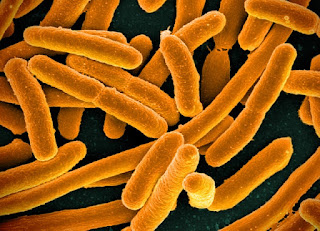Bacteria Cells Reveal More Complexity
Here is another example about how scientists think they have some things figured out, then a new discovery shows that the learning continues. In biology, it was thought that cells were simple things. Advances in technology and further research reveals amazing complexity in cells.
Bacteria get help from an extremely common molecule called polyphosphate. These molecules are found in rocks containing phosphorus. Polyphosphates are used in fertilizers, small amounts are added in water treatment so slow corrosion, and they are important in our own blood coagulation. Polyphosphates are used by bacterial to "silence" gene expression to help protect themselves against destructive viruses. Once again, the genius of the Master Engineer is displayed, but materialists do not acknowledge this fact.
When a cell is referred to as simple, it should mean that it is simple in comparison to the cells of other organisms, such as bacteria cells. They are susceptible to attacks from viruses that change their genomes. A method of protection was discovered.
 |
| E. coli, Flickr / National Institutes of Health (CC BY-NC 2.0) |
Yet another layer of complexity has been added to the lowly bacterial cell. It has been discovered they can undergo genetic silencing to guard themselves from mutations. A researcher stated this finding is “an extremely important system that had not been appreciated until now."Prior to this discovery, it was thought all parts of the circular chromosome of the bacteria were fully expressed. In other words, the bacterium could not control chromosome accessibility.
To finish reading this short but somewhat technical article, click on the overly-long title, "Bacterial Complexity."